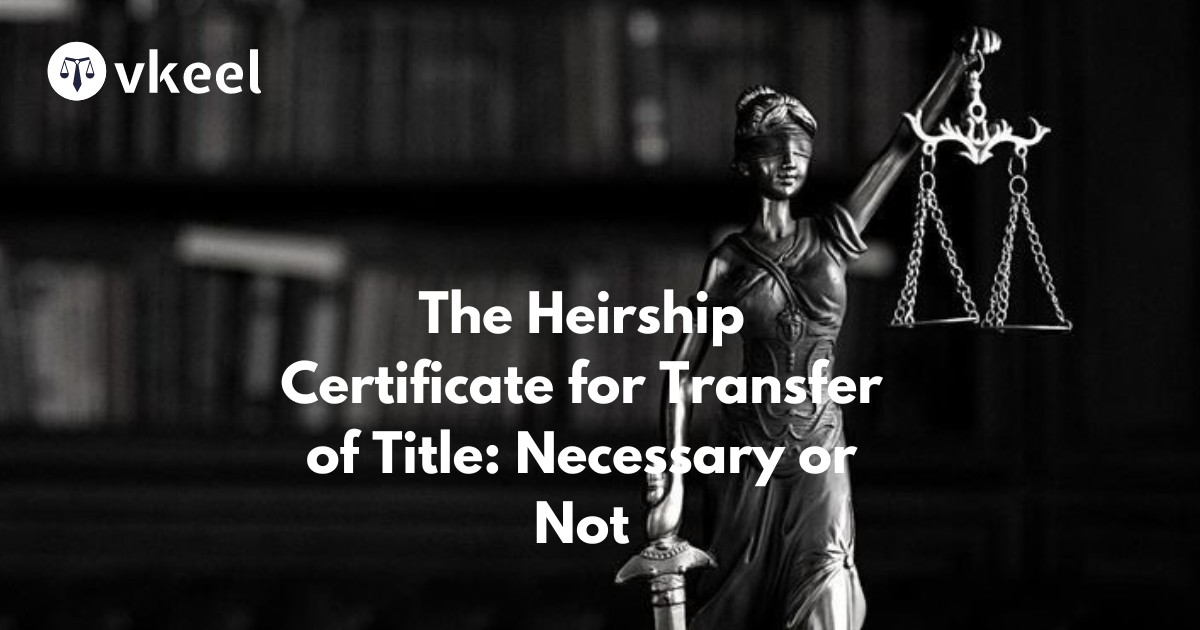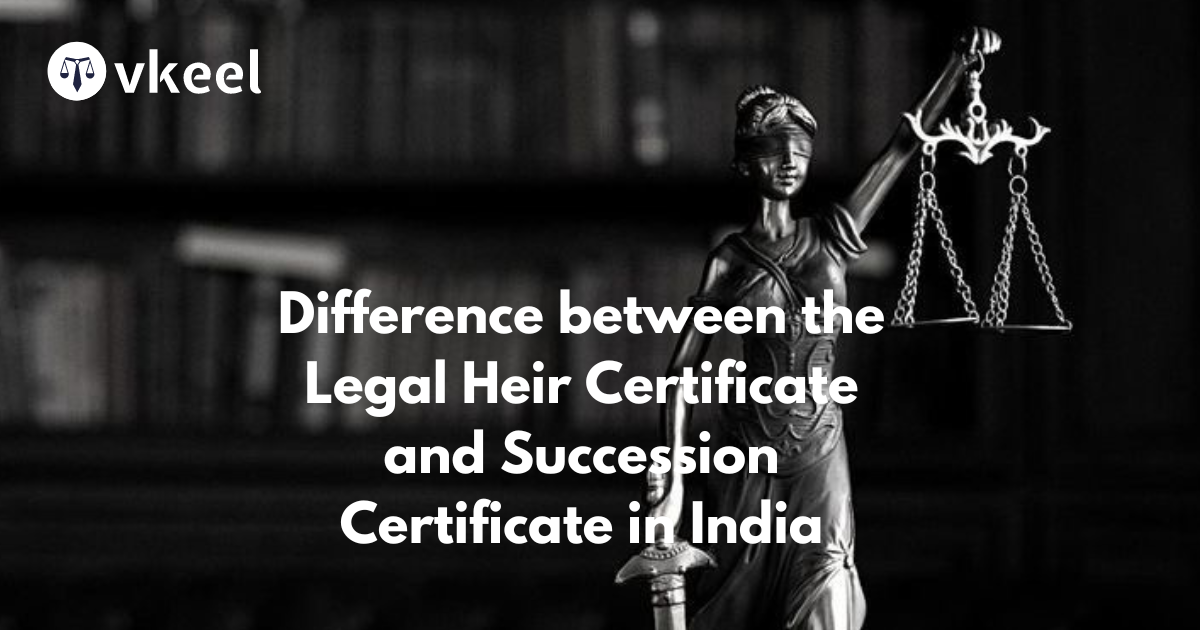Footprints to Transfer property after death of spouse
By Himanshu Kumar
Table of Contents
Introduction
An emotional roller coaster ride starts when you lose someone very close to you such as losing a spouse is extremely emotional experience, and amidst the grieving process, there are some important tasks which need our attention.
One of the tasks is transfer of property owned by the deceased spouse. In India, the process of transferring property after death of spouse involves many legal procedures and documentation related to specific laws.
Additionally, recent case laws and amendments can provide a better perception related to above mentioned transfer specifically after the death of spouse.
Determining the legal ownership of property
It is important to understand the legal ownership of property, before entering into the complexities of transfer of property.
The ownership is classified can be classified into two categories which are:
Ancestral property: A property which is inherited from his /her ancestors, in such property individual only has a limited interest.
Self-acquired property: A property which is acquired by his resources and income, in such property individual has an absolute interest.
Legal structure for transfer of property
The legal structure related to property transfer based on numerous factors which are religion, personal laws and culture.
Hindu, Muslim, Christian and individuals related to other religion have different personal laws which contain different rules for transfer of property and inheritance.
Certain different laws related to property transfer are:
Hindu Succession Act, 1956
This act governs on Hindu, Buddhists, Jains and Sikhs for the transfer of property.
Under this Act, according to general rule of succession which is clearly mentioned in section 15, the property of deceased Hindu male is distributed among his legal heirs, including his widow and children.
If the husband dies intestate means without a will, the property of deceased spouse is distributed among the Class I heirs, which include the surviving spouse, children, and mother.
Muslim Personal Law
This law specifically govern on Muslims in India and which regulates the matter of inheritance and succession.
During the transfer of property after the death of Muslim spouse, inheritance is governed by Sharia Law where specific shares allocated to various relatives, including the surviving spouse.
The distribution of property under this law depends on various factors, including the presence of other legal heirs, the nature of the property, and any specific instructions left by the deceased spouse.
This law follows a system of inheritance known as “Faraid” which specify fixed shares for different heirs. The primary heirs known as “Asabah” include the spouse, children, parents and siblings.
Indian Succession Act, 1925
This Act applies to all except Muslims, it governs matters related to wills, intestate succession and the administration of estates.
If the deceased spouse has left behind a valid will, the property will be transferred according to the provisions outlined in the will.
The Act recognizes the rights of the surviving spouse to inherit the property of the deceased spouse in certain circumstances which depends on various factors such as the presence of children, other legal heirs, and the nature of the property.
This Act basically provides provisions for intestate succession, individuals have the option to draft a will and testament to specify their wishes regarding the distribution of their property after death.
Certain steps taken for transferring the property after death of spouse
There several steps in transferring of property after the death of spouse, regardless of individual‘s personal circumstances.
Here are some step-by-step footprints:
Obtain a Death Certificate
Under this step, an existing spouse needs to obtain the death certificate of the deceased from the local municipal authority or from the registrars of births and deaths.
The death certificate serves as legal proof of the spouse’s demise and is requires for all subsequent procedures.
Determine the ownership an legal heirs
The next step is to identify the type of property owned by the deceased spouse which can be ancestral or self-acquired property.
After identifying the property, the appropriate individual or authority need to determine the legal heirs entitled to inherit the property.
Legal heirs may include the surviving spouse, children, parents, and other relatives as per the applicable personal laws
Verify the Existence of a will
If there is a will left behind by the deceased spouse, it must be verified. The will typically outlines the distribution of assets, including property, among the legal heirs and existing spouse.
If a will exists, the property transfer process will be guided by its provisions.
Apply for Succession certificate or Probate
In cases where the deceased spouse has not left behind a will or the property is not given to specific beneficiaries, the legal heirs may need to apply for a succession certificate or probate from the competent court.
A succession certificate is obtained for movable assets, while probate is required for immovable property.
Transfer of Property
Once the court passes the succession certificate or probate is obtained, the legal heirs can initiate the process of transferring the property in their names.
This typically includes executing the necessary legal documents such as gift deeds, relinquishment deeds, or sale deeds, depending on the nature of the transfer.
Payment of Taxes and Fees
The payment of taxes and fees depends upon the value of the property and the prevailing regulations in the respective state, certain taxes and fees may be applicable during the transfer process.
These include stamp duty, registration charges, and capital gains tax, if applicable
Update Land Record
After the transfer of property is completed, it’s essential to update land records to reflect the change in ownership.
This involves updating records with the local revenue authorities or Municipal Corporation as applicable.
Challenges and considerations
During considering the above mentioned footprints, there are several challenges and considerations must be taken into account:
Dispute among legal heirs
Disputes may arise among legal heirs regarding the distribution of property, especially in the absence of a clear will or if there are conflicting interpretations of personal laws.
Tax Implications
Property transfer may attract various taxes, including stamp duty, capital gains tax, and inheritance tax.
Understanding the tax implications is crucial to avoid legal issues in the future.
Documentation Requirements
The property transfer process involves documentation, including death certificates, legal heir certificates, succession certificates and various deeds.
Ensuring all required documents are in order is essential to prevents delays and complications.
Cultural and Religious Practices
Cultural and religious practices may influence inheritance patterns and property distribution among legal heirs.
It’s important to respect and adhere to these practices while navigating the transfer process.
Latest Amendments
Amendment to Hindu Succession Act
The Hindu Succession (Amendment) Act,2005 brought a significant changes to property rights of women, daughters, and widows in Hindu families.
It provides daughters the same rights as sons in ancestral property and recognizes the widow’s right to inherit property equally with other legal heirs.
Uniform Civil code Debate
The ongoing debate on implementing a uniform civil code in India aims to bring uniformity in personal laws related to marriage, divorce, and inheritance across all religions, which could have significant implications for property transfers after the death of a spouse.
Digital Initiatives
Various states have introduced digital initiatives to streamline the process of property transfer after death such as online application systems for probate or succession certificates and e-mutation facilities for updating property records.
Case Laws
Prakash & Ors vs Phulavati & Ors(2016)
In this case, the Supreme court clarified the rights of daughters as coparceners in a Hindu Undivided Family property.
The court held that daughters have equal rights as sons in ancestral property, even if the father died before the enactment of the Hindu Succession (Amendment) Act, 2005.
Charan Singh vs Surinder Kaur (2010)
This case dealt with the validity of a will and the rights of legal heirs under the Indian Succession Act.
The court emphasized the importance of proving the genuineness and validity of a will, especially when challenged by aggrieved heirs.
Mangammal vs Masilamani (2013)
In this case, the Madras High Court addressed the issue of succession to the property of a predeceased son by his widow.
The Court held that the widow of a predeceased son is entitled to inherit the share of her deceased husband in the ancestral property, subject to certain conditions.
Conclusion
Transferring property after the death of a spouse in India requires a systematic approach to certain legal procedures and clear communication among legal heirs.
By understanding the relevant laws (Hindu Succession Act,1956 , Muslim Personal Law, Indian Succession Act, 1925 ), obtaining necessary documents, and following the prescribed steps, individuals and existing spouse or legal heirs can ensure a smooth functioning of transfer of property.
Determining these laws and seeking legal advice can ensure a smooth transition of property ownership and prevent disputes among heirs.
While recent legal developments have sought to enhance the rights of widows and women in property matters, ongoing debates such as the Uniform Civil Code indicate the evolving nature of inheritance laws in India.
Disclaimer:
The information provided in the article is for general informational purposes only, and is not intended to constitute legal advice or to be relied upon as a substitute for legal advice. Furthermore, any information contained in the article is not guaranteed to be current, complete or accurate. If you require legal advice or representation, you should contact an attorney or law firm directly. We are not responsible for any damages resulting from any reliance on the content of this website.








